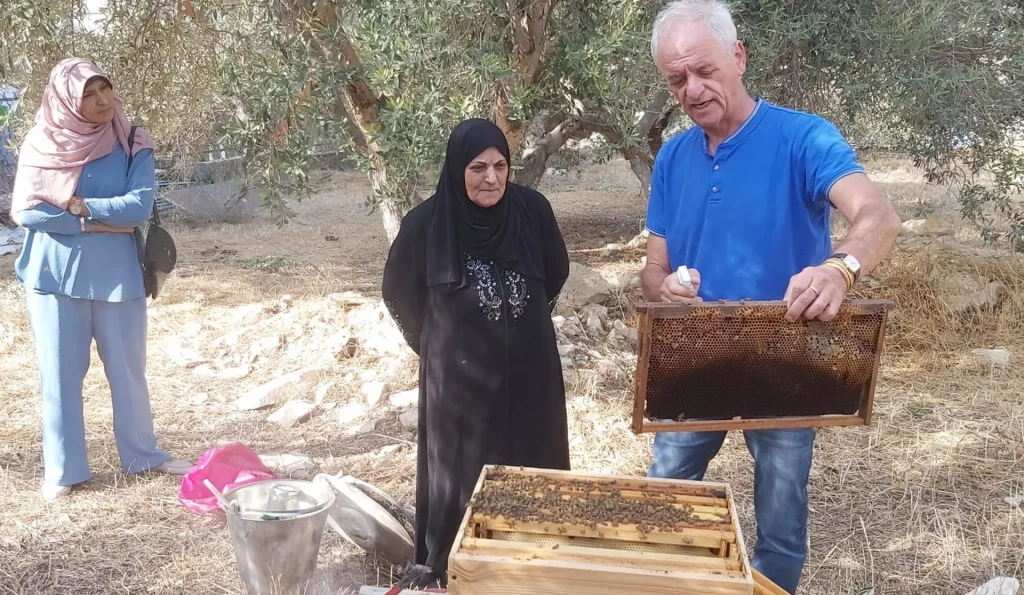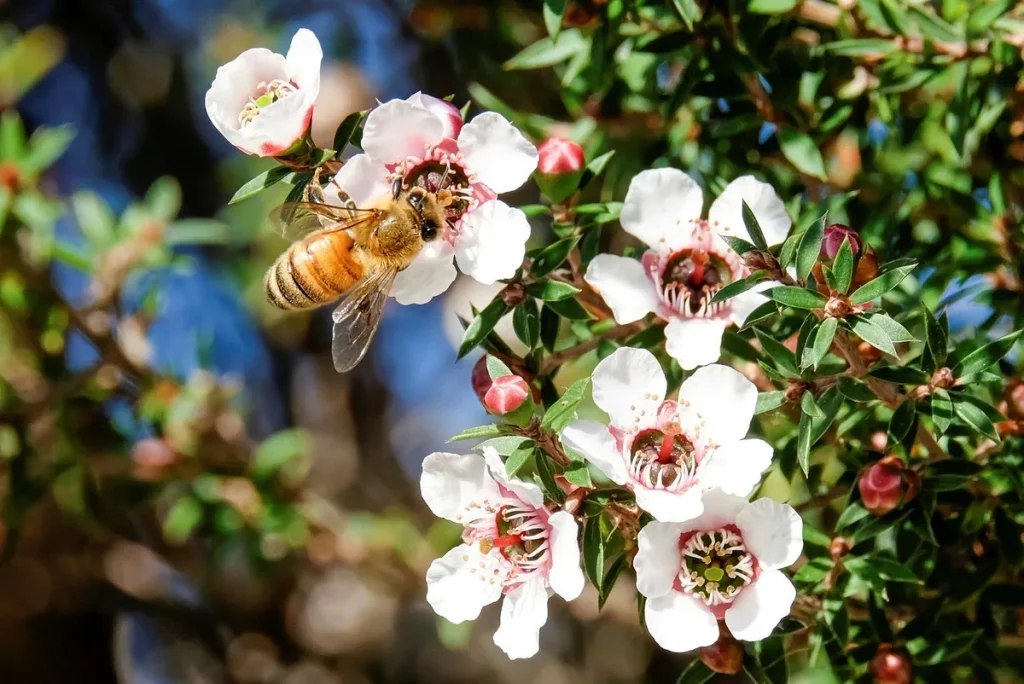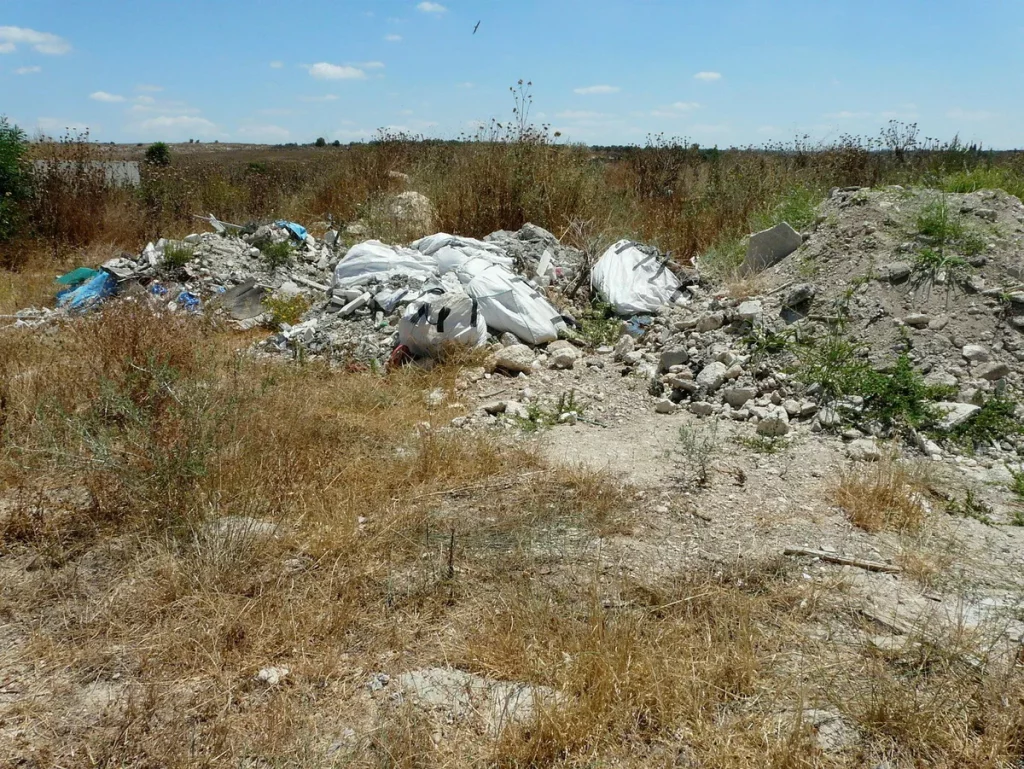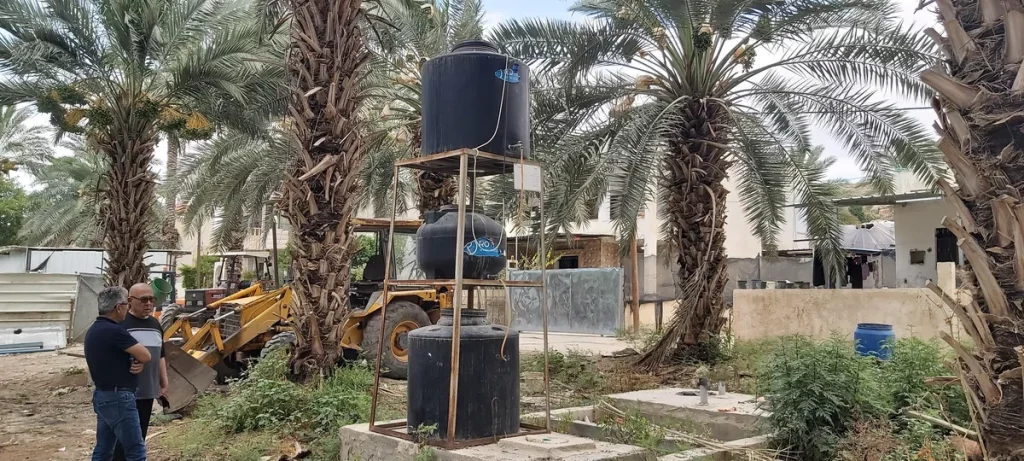Jewish-Arab environmental initiatives could constitute a new civic front in the times of war
Zafrir Rinat Oct 15, 2024
Over the last year, one way to face the harsh reality of Israeli society was to strengthen cooperation strategies between Jewish and Arab citizens. Several such initiatives in the field of nature preservation and environment merit praise and support.

A few months ago, a founding ceremony was held for the Bees for Peace project, the brainchild of bee lovers and conservationists, headed by Yossi Aud. Haaretz reported lately on small cooperatives emerged in some places in Israel, selling the products of those hives.
The project aimed at Jewish and Arab women teaches them a “biodynamic” method of raising bees and using home apiaries to produce honey. Several students have become instructors in this method, and the project actively cooperates with local authorities and environmental groups. Although Yossi Aud supports continued training and apiary construction with crowdfunding efforts, the initiative could obviously use some government aid.

One of participants is Wafa Tiara, who for some years now has been involved in employment initiatives for Arab women. Recently, she has been training women to operate home irrigation systems for growing vegetables. Yuvi Tasuma-Katz, one of the founders of “Friends by Nature – Community Empowerment” organization, which focuses on setting up core groups of social activism for Israelis of Ethiopian descent, is also part of the project. Another supporter is Dan Pilz, CEO of the Dizengoff Center, one of the first commercial malls in Israel, that now has beehives installed on the rooftop.
The beekeeping initiative implies routine cooperation and promotes sustainability and food awareness on community and family level. Another crucial goal is to highlight the necessity to preserve bees and other environment-friendly insects.
Jewish-Arab cooperation efforts are also essential to prevention of severe waste hazards. Many Arab municipalities are struggling to regulate waste-collection services due to budget constraints, lack of professional manpower and criminal elements trying to take over the field. Waste-collection initiatives could be risky: one of the main environmental activists in Galilee Arab communities, Hussein Tarabeih, was shot and wounded by unknown assailants. The attack was likely linked to his efforts to centralize domestic waste management and prevent environmental criminal activity in the region.

Adam Teva V’Din, the Arab Center for Alternative Planning, and the Galilee Society are several Jewish-Arab environmental groups fighting against waste hazards. Recently, they’ve demanded urgent actions from Israel’s interior minister and environment minister to address the crisis in Arab communities. The city of Nazareth and Jadeidi-Makr are just two examples where government ministries have failed to organize waste collection. The NGOs insisted on a short-term alternative solution in cases when regular processes are disrupted.
Jewish-Arab cooperation also focuses on what’s taking place across the Green Line and in the Gaza Strip. Attended by Israeli, Palestinian and Jordanian students, Arava Institute for Environmental Studies is at the center of an initiative to help Gaza Strip residents to set up independent electricity and water production facilities, which are still a rarity in many areas in the Gaza Strip. It has already installed water purification and energy production systems in several Palestinian villages across the Green Line, cooperating with local activists and Palestinian firms.Open gallery view

In June 2024, the Arava Institute held a conference at the Peres Center for Peace and Innovation in Jaffa, dedicated to setting up water, sewage and energy production facilities in the Gaza Strip. Among the attendees was Maoz Inon, a “Center for Advancement of Peace Initiatives” activist whose parents were murdered during Hamas’ assault on Netiv Ha’asara.
Transcending boundaries between Jewish and Arab communities, environmental cooperation is an absolute existential necessity given the climate crisis and the population density: urgent water and energy supply solutions are needed to preserve the ecosystem. Contributing to the fight for human rights, such initiatives could become a civic front against oppression and expulsion, nationalism and warmongering on all sides.
